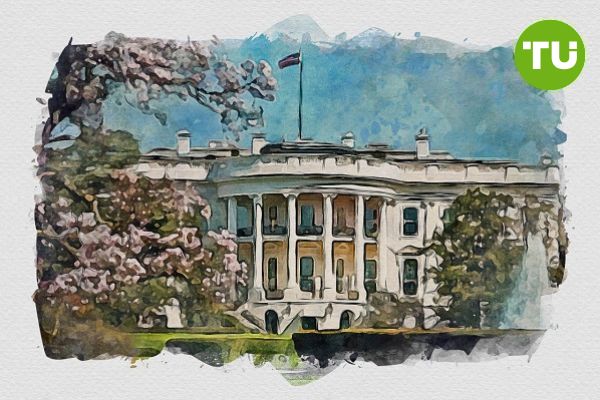U.S. lawmakers pass STABLE Act amid controversy over Trump ties to cryptocurrencies
 Regulatory clarity seen as essential to U.S. competitiveness in blockchain innovation
Regulatory clarity seen as essential to U.S. competitiveness in blockchain innovation
In a major move toward formalizing digital asset oversight, the U.S. House Financial Services Committee has approved the STABLE Act, which aims to establish a clear regulatory framework for dollar-backed stablecoins.
The bill passed in a 32-17 vote, with support from both sides of the aisle—26 Republicans and 6 Democrats—reflecting growing bipartisan interest in regulating the fast-evolving cryptocurrency space.
Key takeaways
- STABLE Act passes 32–17, sets rules for reserve backing and AML compliance for stablecoins.
- Trump’s ties to WLFI’s USD1 token raise ethics concerns among Democrats.
- Lawmakers also debated CBDC ban and passed a bill to counter crypto-related crime
- Regulatory clarity seen as essential to U.S. competitiveness in blockchain innovation.
Stablecoin bill is gaining momentum
The STABLE Act, introduced by Chair French Hill and Rep. Bryan Steil, outlines new guardrails for the issuance of dollar-backed stablecoins. These include reserve requirements, transparency, and anti-money laundering (AML) provisions aimed at protecting consumers and national financial integrity.
Loading...
However, the legislation has stirred political controversy due to former President Donald Trump’s connections to World Liberty Financial (WLFI), the issuer of a new stablecoin known as USD1. Critics fear Trump could personally benefit from regulations he may influence if re-elected.
While the bill is seen as a crucial step toward establishing regulatory clarity in the sector, Democratic lawmakers raised alarms during the markup session about former President Trump’s involvement in crypto projects. Trump-affiliated WLFI recently unveiled its USD1 stablecoin, leading some lawmakers to question whether the bill could pave the way for conflicts of interest, especially given Trump’s past ventures into NFTs and memecoins like TRUMP.
This token was trading 2 for $72 at the peak of its popularity, and now the price has fallen below $10.
TRUMP price dynamics (March-April 2025). Source: СoinGecko
Congress weighs broader crypto regulation
The stablecoin debate was part of a wider crypto legislative agenda. Lawmakers also considered a bill to ban a U.S. central bank digital currency (CBDC), which narrowly passed committee review with a 27-22 vote, and approved the Financial Technology Protection Act, which targets crypto-facilitated crime, with unanimous support.
These developments mark a growing recognition on Capitol Hill of the need to balance innovation with oversight, particularly as the U.S. seeks to maintain global leadership in digital finance.
Impact on the industry
With the STABLE Act advancing and other crypto-related bills gaining traction, Congress is poised to play a central role in shaping the future of U.S. digital asset regulation. As the 2024 presidential election approaches, scrutiny over Trump’s crypto affiliations may intensify, raising broader questions about transparency and influence in the digital finance landscape.
In addition, we wrote that FDUSD stablecoin depags amid Justin Sun's insolvency allegations.













































































































































